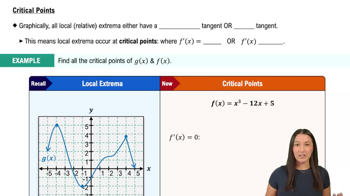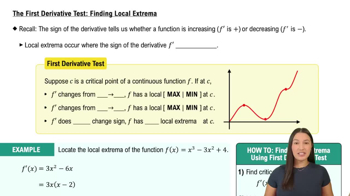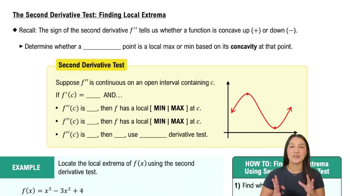Each of Exercises 43–48 gives the first derivative of a function y = ƒ(𝓍). (a) At what points, if any, does the graph of ƒ have a local maximum, local minimum, or inflection point? (b) Sketch the general shape of the graph.
y' = 𝓍⁴ ― 2𝓍²
 Verified step by step guidance
Verified step by step guidance Verified video answer for a similar problem:
Verified video answer for a similar problem:



 6:02m
6:02mMaster The Second Derivative Test: Finding Local Extrema with a bite sized video explanation from Patrick
Start learning